The Director of 'Bao' Explains Why She Wanted To Make A Short Film About Dumplings
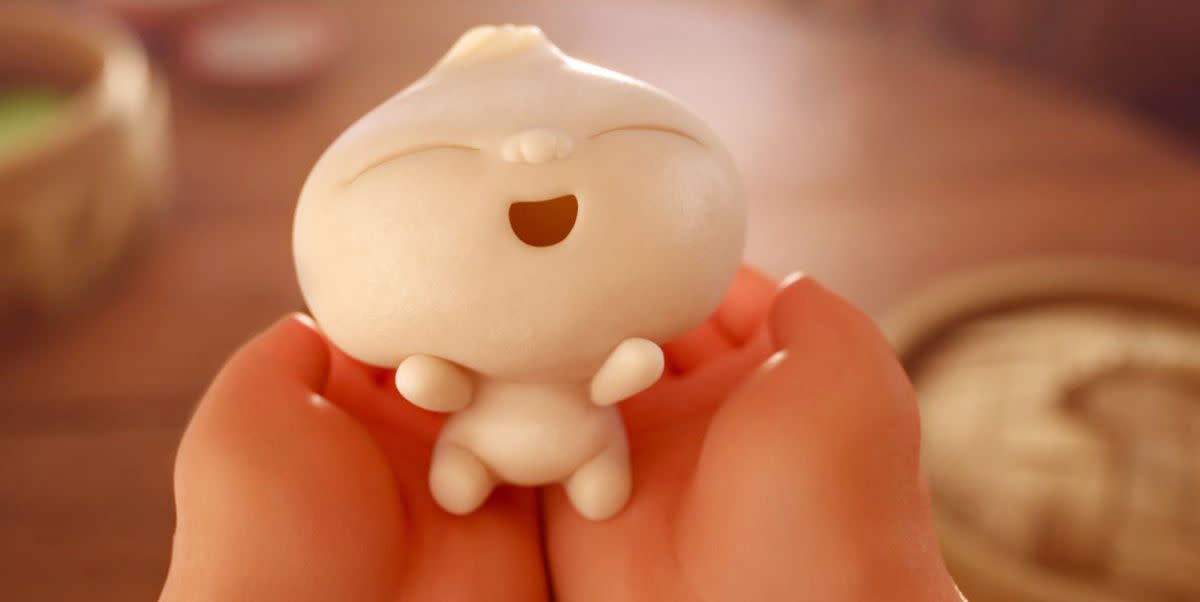
If you've seen Incredibles 2, then you've also seen Bao, the pre-feature short film that follows a steamed bun come to life. Bao was written and directed by Domee Shi, who started out as an intern in Pixar's storyboarding department seven years ago. Here, the 28-year-old Shi - who's also the first female director of a Pixar short and is currently working on her own feature film - chats about her favorite Easter egg in the film, sticking to her guns, and what she has to say to those who "don't get it."
"Bao" has a few different meanings in Chinese. Was it always your intention to create a literal bao dumpling?
I had experimented with different designs for the bao, but I have always been in love with that shape - the tapered top and the little round bottom. I feel like they already look like little characters in real life. All you have to do is add a little face to them and they're already super cute! But when I pitched it to the studio and to other people, I would say that it was a dumpling, because I have a closer connection with dumplings -my family and my mom would make jiaozi. But for the aesthetic purposes of this animated short I chose a bao as a design for the character because I thought it looked cuter.
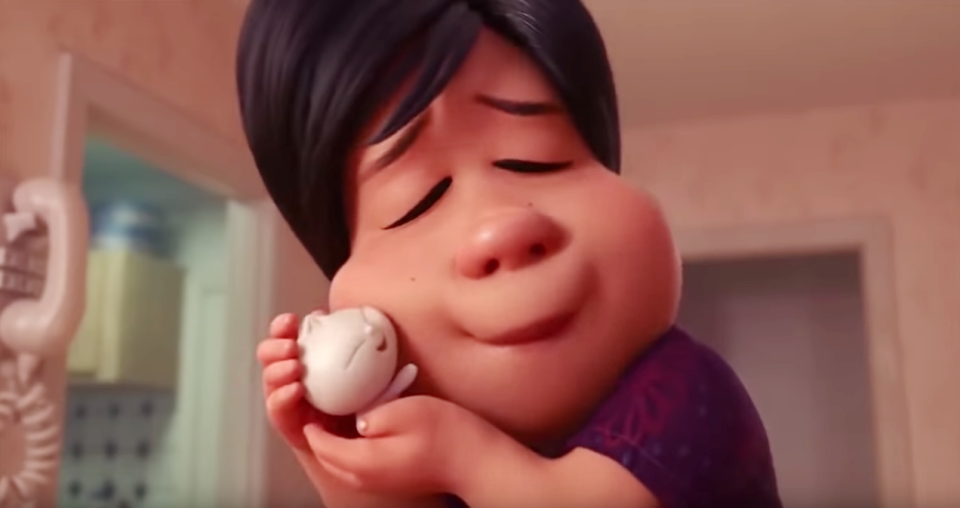
The very first image that popped into my head that I had to draw down was this old Chinese lady, like, nuzzling this little dumpling boy to death. I really was just inspired by doing a Chinese version of "The Little Gingerbread Man," like my own modern fairy tale. I wanted to fill this story with images and people and details that I grew up with that I really love and that I wanted to see on the big screen. That was another motivation for me to make this short - I haven't seen anything like this on screen.
What's your favorite little detail that you included?
The tinfoil on the burners - that's something that my mom did growing up. I think they still do that, because it's just such a practical way to keep the pans clean. I love all of the little tchotchkes and decorations that fill the mom character's house, like we have this Chinese calendar in the dining room that we've specifically designed to be like those calendars that you'd get if you go to a Chinese supermarket, like a promotional thing. I was really happy to get those details in there - those little things that I felt like really were staples in every Chinese home that I visited or lived in growing up. Oh, and my one favorite little detail is the toilet paper roll on the coffee table, because it also confused some people in the audience. It confused a couple of non-Asian people. It was fun just having to explain to them like, "It's practical! I just buy one type of tissue and then just use it for all kinds of things around the house."
Was there anything that inspired you from your own life, where your parents were very overbearing or overprotective?
Yeah, totally. That whole [eating] moment came from my experiences with my mom. She'd often hold me close and say, "I wish I could put you back in my stomach so I knew exactly where you were at all times," and I'd be like, "Oh, that's sweet but kind of creepy, Mom." It's also kind of drawing on that feeling that we all get when we see something really cute. You're like, "You're so cute I could eat you up," or you're staring at something so cute that it's kind of awakening almost violent feelings.
Why did you decide to make Bao a boy instead of a girl?
It was always kind of a boy in my head when I came up with that first image of a mom nuzzling a little dumpling boy, and I just rolled with it. I also want to put some distance between myself and my art sometimes so I don't get too personally attached to the short. I was afraid that if it was too autobiographical that I wouldn't be able to make those hard decisions when it came to simplifying stuff or cutting stuff out. I was afraid that I would treat it too preciously, so having that small distance between myself and the story allowed me to explore and get creative with the dumpling character, like [with] the sesame-seed goatee.
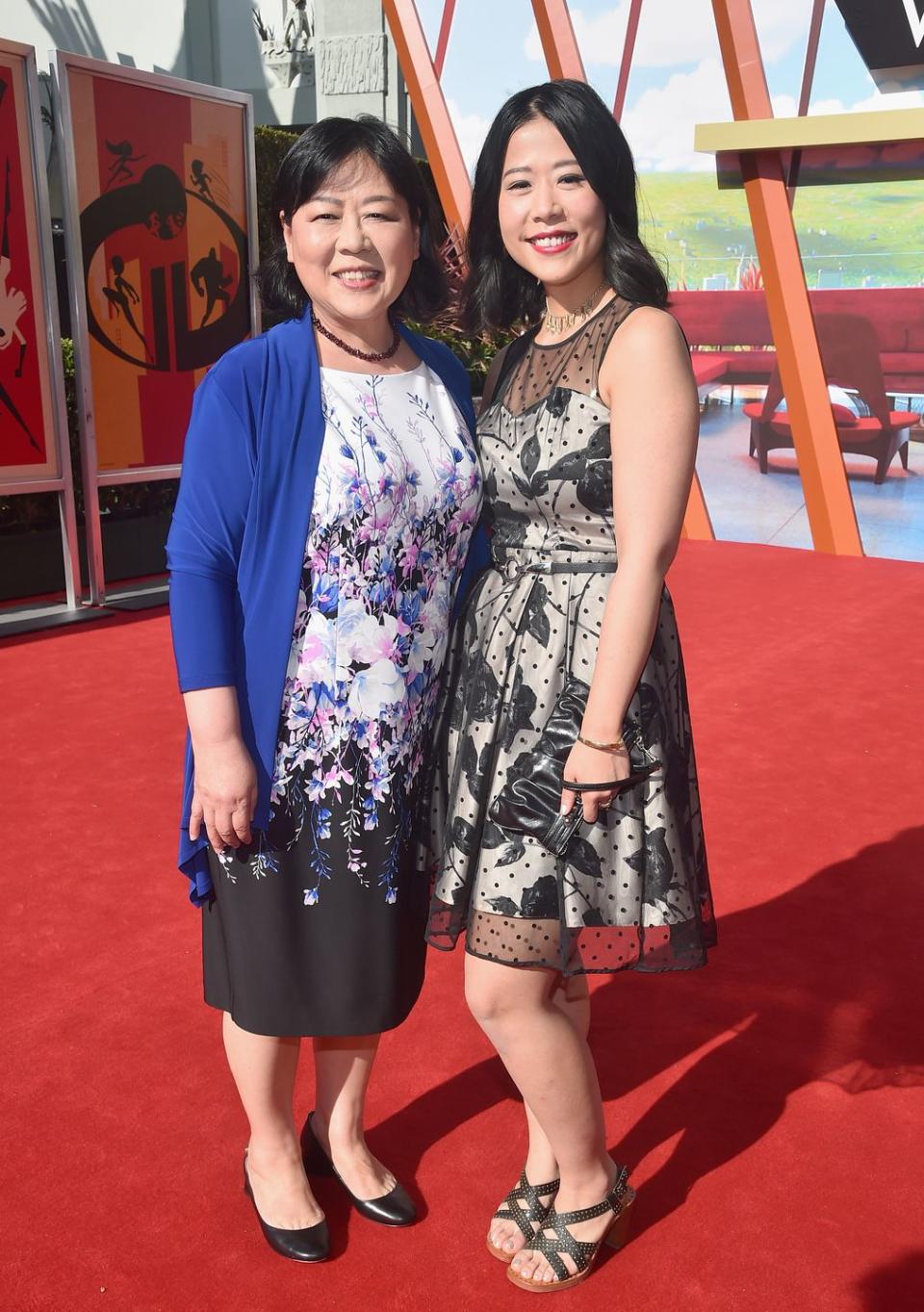
What did your parents think of the film?
They liked it. I took my mom to the premiere and she was really proud. I think she was more proud when people came up to me and congratulated me because I think she's more proud of me as a person than she is of the thing that I created, which is interesting, but she really liked it. I think she got misty-eyed. She's not a very emotional person on the outside, but I think I saw some wetness in her in her tear ducts. And then my dad recently saw it, too. He's an artist himself; he is an art professor at a school in China and he paints for a living, too. He's always been almost like my teacher and my mentor figure, and he said he liked it but he also gave me notes on it, too which I thought was kind of funny.
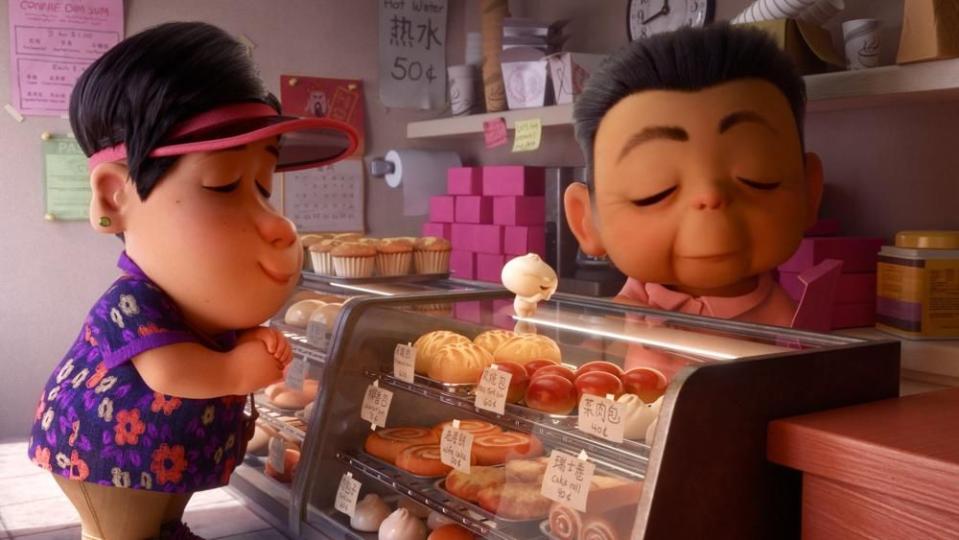
At the end of the short, the mother eats the bao, which is kind of dark. At any point did anyone tell you to tone it down or make it more universal?
The strange thing is I never had feelings of doubt about the cultural details. I only had feelings of doubt about the dark elements of the short, like when she eats him and I actually did tone it down at some point. When I pitched it to the studio I changed the ending so the mom character didn't eat the dumpling because I was afraid that it wouldn't be family-friendly enough. But luckily [Pixar director] Pete Docter was in the panel of judges [when] I pitched an earlier version, and he stood up and was like, "That's not the version that you pitched to me! You should pitch the original version." It was because of him and his encouragement that really helped me find the confidence to just stay true to my original, weird voice.
So many classic fairy tales like Brothers Grimm, the original Little Mermaid or Hansel and Gretel or Cinderella, they all have dark elements. They're super graphic. Not to say that we should put a lot of that graphic stuff in films for kids, but I think kids should be exposed to the dark side of life, too, because that's part of life. When we tell stories to kids, when we make films for kids, we're kind of trying to equip them with skills that they might need for the future. That was my intention with Bao.
There's a meme floating around where a white girl says that Bao was the most confusing 10 minutes of her life. What do you have to say to that?
I really hope that they're at least curious enough to watch it again. It also helps to talk about it with other people who did get it, and just even, like, Google it. But I'm just taking the whole thing in stride. It's cool that the short is bringing up such interesting conversations and debates about culture, about food, about all this stuff. I wanted to tell this universal story about food bringing family together and overprotective parents learning to let go of their children, and I still hope that those themes resonate with audiences who might not be Asian. But yeah, approach it with curiosity! Go to a Chinese restaurant or chat with somebody about it. It couldn't hurt. Don't be afraid of the dumpling!
This interview has been edited and condensed.
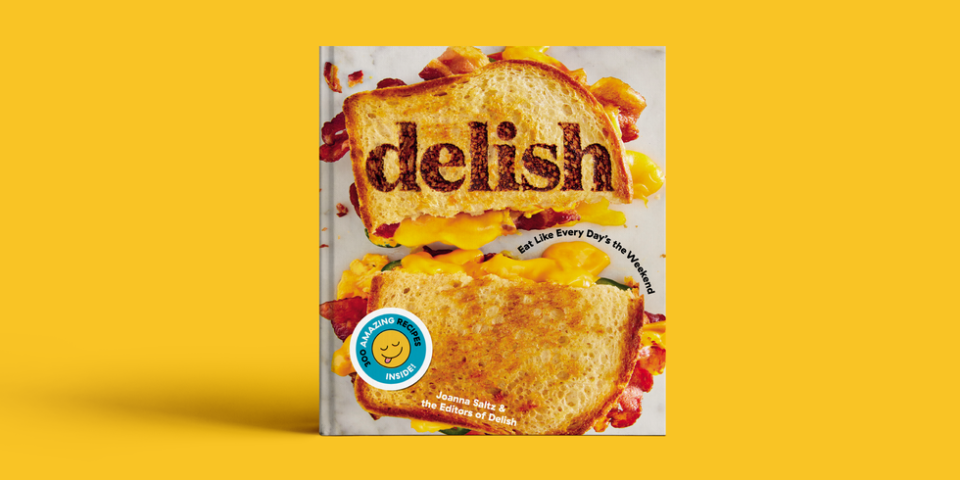
PRE-ORDER NOW Delish Cookbook, $30, booksamillion.com
You Might Also Like
